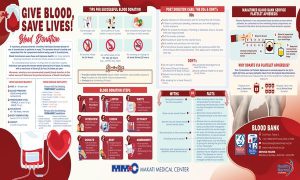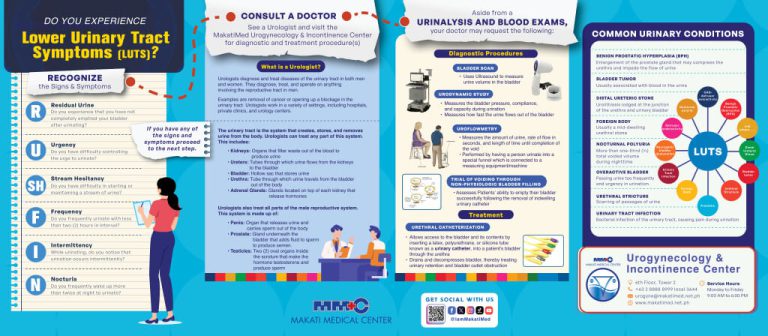Though many patients often overlook the symptoms, colon cancer is one of the most common cancers both globally and in the Philippines. Luckily though, it is also one of the most curable, especially when detected early.
Let doctors from Makati Medical Center, a top hospital in the Philippines, fill you in on the details of this disease, as well as what to look out for.
Colon cancer (also known as colorectal cancer) occurs when a malignant or cancerous tumor grows in the colon or rectum, thereby affecting the digestive system. The exact cause of colon cancer remains unknown, but people at higher risk tend to be 50-year old and above who have smoking and drinking habits, a family history of colon cancer, and a diet high in red meat and fat but low in fiber. In some cases, however, people who don’t meet any of these criteria are still diagnosed.
One of the most common signs of colon cancer is a change in bowel habits. “When a cancerous tumor grows gradually, it will affect things like stool consistency and the amount of times you have to use the bathroom,” explains Ma. Belen E. Tamayo, MD Section Chief of MakatiMed’s Section of Oncology. “If you notice your stools have become watery or soft, or if you have diarrhea or constipation or a change in the caliber of your stools, you might want to get checked.”
“Because of the changes in bowel movement, patients may feel intermittent belly pain,” says Dr. Tamayo. “If you suddenly feel some severe belly pain, it can be a sign that the large intestine has been affected by the tumor.”
Patients with colon cancer also tend to get easily exhausted, even if they get enough rest. “Cancer cells drain our energy, so patients will feel lethargic without explanation.” This fatigue usually goes hand-in-hand with unintentional weight loss because cancer cells use up the body’s energy and complicate the way food is processed. Similarly, anemia due to slow bleeding particularly in tumors located in the right side of the colon may also explain the easy fatigability. “People usually think that blood in the stools is due to hemorrhoids, but they must be aware that it can also be from colon cancer,” says Dr. Tamayo. “If you see red spots on your stools, you must consult with a doctor immediately.”
The best way of getting tested for colon cancer is through a colonoscopy wherein a long tube with a tiny camera is inserted into your colon to check for abnormalities. A gastroenterologist will examine thoroughly and remove any polyps that are found. Patients are usually put to sleep during the procedure. Dr. Tamayo recommends that anyone over the age of 50 get a screening colonoscopy to be safe.
Be proactive with your health and get screened for colon cancer now.
For more information, please contact MakatiMed On-Call at +632.8888 999, email [email protected], or visit www.makatimed.net.ph.











